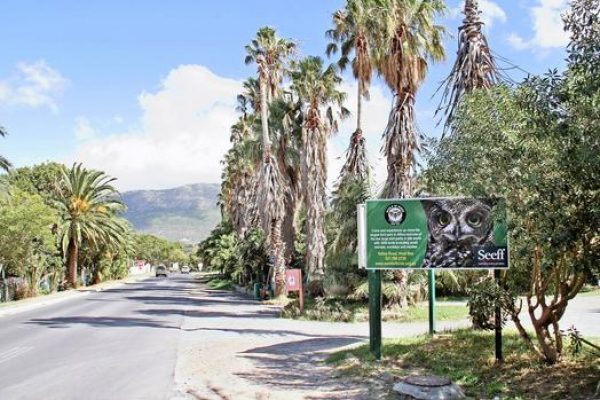World of Birds Wildlife Sanctuary in Hout Bay is rated one Cape Town’s top five natural tourist attractions next to the city’s iconic drawcards, Table Mountain, Cape Point, Kirstenbosch National Botanical Garden and Boulders Beach.
Considered a world-class wildlife sanctuary, World of Birds was born in the early 1970s from Walter Mangold’s desire to help sick and injured birds and his knack for caring for them. He initially worked from home but Capetonians soon began calling him the Bird Man and bringing him injured birds from all over the city. This led Mangold to open World of Birds as a sanctuary for his hundreds of birds and animals. Today, it is the largest bird park in Africa and home to 2 500 birds and small animals, such as monkeys, tortoises, meerkat and porcupines.
In addition, the sanctuary focuses on breeding rare and endangered species and is the only organisation in the world to have successfully bred the endangered ground hornbill.
Although this may read like a real-life Dr Dolittle feel-good story, the reality is that the 45-year-old sanctuary has been facing an ongoing financial struggle, which has only been compounded in the last 12 months.
South Africa’s faltering economy and Cape Town’s water crisis, which kept many overseas visitors away during the traditional tourist season, combined with rising operational costs, put World of Birds under severe pressure in 2018. This came on the heels of the 2017 outbreak of avian flu in South Africa that saw the entire World of Birds placed under quarantine.
Although the park did not have to close, its veterinarian bills kept increasing as visitors stayed away in the mistaken belief that humans can contract avian flu when around infected birds. (It can only be contracted by eating the meat of an infected bird or coming into contact with its droppings or bodily fluids.) Throughout this, the team continued to accept injured and ill birds and never deviated from their no-kill policy. Despite their best efforts, only around 20% of the animals they take in recover sufficiently to fend for themselves in the wild again and 80% have to remain at the sanctuary. While the sanctuary’s income therefore dropped, operational costs grew to around R650 000 per month.
In an attempt to relieve the financial pressure it was under, World of Birds’ 40 staff members were placed on short time to reduce its wage bill, which comes to R4,5 million a year.
It was upon hearing of World of Birds’ plight that Astral Foods decided to step in in August 2018. CEO Chris Schutte says, “The World of Birds is a Cape Town institution that does excellent work. We could not ignore their plight and decided to become involved in an endeavour to assist the park.”
As a result, Astral Foods has been providing the sanctuary with an R100 000.00 worth of feed per month since August 2018 until such time as it is back on its feet. In a year, this would translate into feed worth R1,2 million, the equivalent of 80% of World of Birds’ annual food bill.
Astral Foods further undertook to redrill a borehole on the property to reduce its reliance on municipal water. Once the borehole is up and running again it will cut World of Birds’ annual water bill with approximately R300 000.
Schutte says the group has also offered to assist with biosecurity at the sanctuary through Central Analytical Laboratories (CAL), one of its divisions. This will give World of Birds access to the expertise and experience gained at one of the most modern laboratories in Africa, most notably with regard to managing and eradicating AI.
World of Birds’ assistant director Hendrik Louw says, “Right now, things are looking much better compared to the beginning of the year and it is largely thanks to Astral’s donation.”








